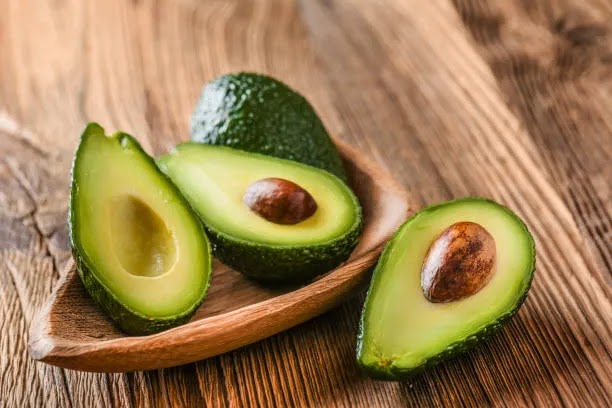Aside from being a popular
weight-loss food, it also has many health benefits.
Avocados are both trendy and delicious. The vibrant, green, soft
fruit can be eaten with a variety of food at any time of day and is used in
various dishes. They also have many advantages that make them excellent
weight-loss food. But, because avocados are high in fat and calories, many
people are curious about what they do to the body when they consume one—and
we're talking about more than just losing belly fat.
Toby Smithson, MS, RDN, CDE, of DiabetesEveryDay and author of
Diabetes Meal Planning and Nutrition, explained how the single-seeded berry
native to Mexico affects your health and avocado benefits there are.
Here's a breakdown of what happens to your body when you consume
an avocado, as well as all the health advantages that come with it.
1. It boosts your fibre intake
Like other fruit, vegetables, and beans, Avocados are known for
their high fibre content.
"One medium avocado contains three grams of fibre while being
low in carbohydrates," Smithson says. "Higher fibre intake may lower
the risk of heart disease, Type 2 diabetes, and obesity."
2. It lowers the risk of heart disease
Avocados are linked to improved heart health, according to
studies.
"Avocados are high in potassium and low in sodium, which
lowers blood pressure and lowers your risk of heart attack or stroke,"
Smithson explains, noting a 2013 research. "When you eat a low sodium,
high potassium diet, you'll lose more sodium through your urine, and your blood
pressure will go down."
While avocados are good for your heart, stay away from these 50
foods that cause heart disease.
3. It lowers the risk of obesity
Avocados are also high in nutrients that may help you avoid
getting overweight or obese. Avocado consumption is linked to "a lower
prevalence of excess weight, and attenuates adult weight increase in
normal-weight individuals over time," according to a 2019 study.
4. It improves your eye health
Who knew avocados could potentially keep your eyesight in top
condition? A 2017 study found that people who ate one avocado per day had
better cognition and vision.
"The antioxidant lutein is present in avocados,"
Smithson explains. "Lutein plays a role in preventing age-related eye
disease and offering improved cognitive performance."
5. It increases your dose of 20 vitamins, minerals, and antioxidants
Avocado consumption is recommended if you want to increase your
vitamin intake. According to a 2013 study, eating avocados improves the overall
quality of one's diet compared to not eating avocados.
"Avocados are nutritional," Smithson notes. Vitamin C,
E, K, B6, riboflavin, niacin, folate, pantothenic acid, magnesium, potassium,
lutein, beta-carotene, and a plant-based supply of omega-3 fatty acids are all
found in them.
6. It increases good cholesterol levels
Avocados are a rare exception that fats are linked to high
cholesterol. "Avocados are a good source of heart-healthy fat,"
Smithson says. "They are cholesterol- and saturated-fat-free. Consuming
the good type of fat (unsaturated) found in avocados has been linked to higher
levels of good cholesterol (HDL) in studies."
7. It lowers your risk of Type 2 diabetes
Avocados' fibre and fat content have been associated with a
reduced risk of Type 2 diabetes.
According to Smithson, "the fibre content of an avocado helps
you feel fuller faster, and the source of healthy fat helps with satiety
levels, both of which can aid with weight management to reduce your risk of
Type 2 Diabetes."
8. It reduces the risk of Metabolic syndrome
High blood pressure, high blood sugar, abnormal cholesterol levels, and extra body fat are all symptoms of metabolic syndrome, raising the risk of heart disease, stroke, and diabetes. Avocado consumption has been linked to a lower risk of Metabolic syndrome, according to a 2013 study. So go ahead and stock up on avocados and eat them all.









